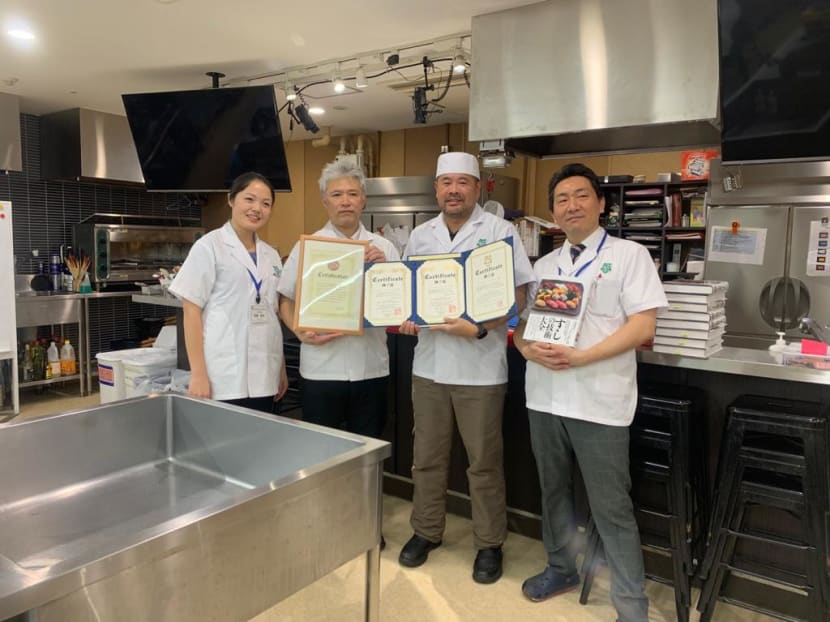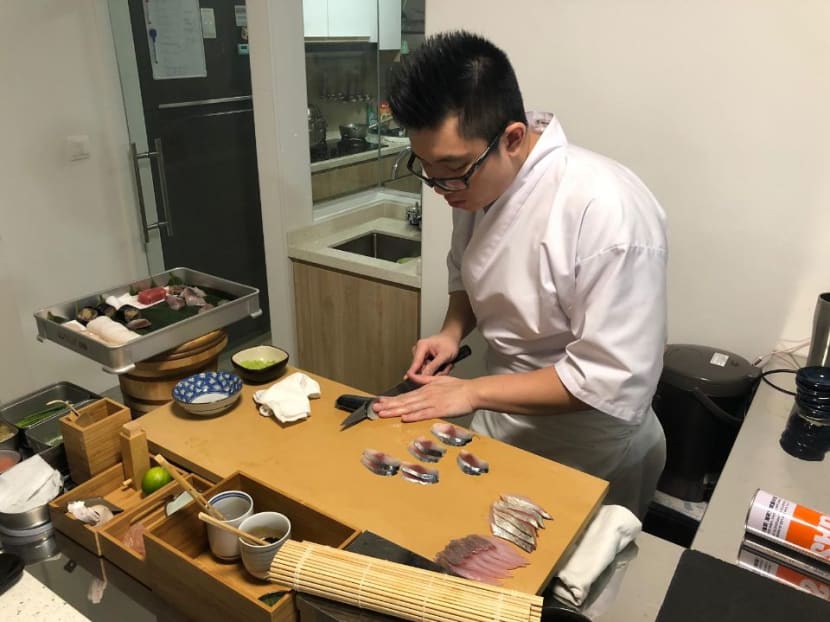SFA bans raw fish sale from homes for safety reasons, hitting income of some home-based business owners
SINGAPORE — Since last month, home-based food businesses have been banned from selling ready-to-eat raw fish by the Singapore Food Agency (SFA) in a move that has caught several home chefs off guard — and left at least one worried he may have to close his business.
- SFA said ready-to-eat raw fish may not be sold by home-based businesses
- The agency said this food is high risk because it is not cooked
- Some home-based chefs selling sushi and sashimi were surprised by ban
SINGAPORE — Since last month, home-based food businesses have been banned from selling ready-to-eat raw fish by the Singapore Food Agency (SFA) in a move that has caught several home chefs off guard — and left at least one worried he may have to close his business.
In response to TODAY’s queries, the SFA said that ready-to-eat raw fish is considered a high-risk food as it is uncooked. Home-based businesses (HBB) are not allowed to prepare it for sale as they may not have the proper facilities and processes to do so safely, SFA added.
An SFA spokesperson explained that under the HBB scheme, operators are subject to rules on food that is unsafe or unfit for consumption in the Environmental Public Health Act (EPHA) and the Sale of Food Act (SOFA).
“As with the consumption of all raw food, there are some food safety risks in consuming ready-to-eat raw fish,” the spokesperson said.
“As a general precaution, vulnerable groups, especially young children, pregnant women, elderly persons, or people with chronic illness, should exercise caution by avoiding the consumption of raw food,” the spokesperson added.
Recent reports have cited bacterial infections associated with eating raw freshwater fish. For example, 50 cases of invasive Group B Streptococcus (GBS) were reported by public hospitals in July — twice the average monthly figure of 25 from earlier this year, The Straits Times reported.
'THROW IN THE TOWEL'
Two home-based business owners selling ready-to-eat raw fish told TODAY they were not aware of the ban.
Mr Jeffrey Yeo, 48, a full-time home chef who has been conducting private home dining services and selling a variety of Japanese takeaway fare since June last year, was “surprised” when he was paid a visit by SFA and Housing and Development Board (HDB) officers on Sept 25.
The officers had placed an order for sashimi and upon collecting it at Mr Yeo’s home, revealed they worked with the authorities and told him that he was not supposed to sell the raw fish.
“I told them that I wasn't aware because it isn’t stated anywhere in the guidelines, and they said the rule has been around for two years which now confuses me after I learnt it was only implemented in September,” he said.
“After that, they said they would like to come in and take a look around and take a sample from the box of sashimi that I had put out for takeaway that day,” Mr Yeo said.
In response to TODAY’s queries, SFA said HBB owners are obliged to refer to SFA’s guidelines on food safety and hygiene practices.
Mr Yeo said that he has not heard back from the SFA since and has only been told that they are investigating the matter. SFA has also approached his suppliers, he has learnt.
While Mr Yeo has continued with his private dining sessions and takeaway orders with a tweaked menu since he stopped serving raw fish, he has lost 40 per cent of his weekly business, comprising the sale of sashimi and sushi. One private dining client cancelled.

Mr Jeffrey Yeo (third from left) with his instructors after receiving his certificate from the Tokyo Sushi Academy in Japan. Photo: Jeffrey Yeo
“It (preparing raw fish) requires painstaking hours of work,” he said.
“It requires expertise and knowledge about the fish, what do we do in the different seasons and I also don’t serve freshwater fish sashimi,” said Mr Yeo, who travelled to Japan last year for a crash course in sushi, sashimi and Japanese cuisine.
He left his 15-year career in the corporate world to fulfil his passion for Japanese food and to care for his young daughters at home.
When he was first told of the ban, Mr Yeo considered opening a small establishment but reality soon hit.
“Unfortunately not everyone has the financial resources to go commercial. And the food and beverage industry is a high stakes business with huge upfront investments. Not everyone is as financially able to go this route. Central kitchens aren’t cheap too,” said Mr Yeo.
For now, he has suspended his private dining sessions past October and is worried he will have to “throw in the towel” unless he can talk to SFA about a possible solution.
Another home chef who specialises in Japanese fare is Mr Jeremy Tan, 33, who has been conducting private home dining services and selling a variety of takeaway Japanese fare since January last year.
Mr Tan’s career as a chef began seven years ago with stints in Japanese kitchens, working as an instructor at the sushi school Tokyo Sushi Academy and even opening his own establishment for a year in 2018 which had to shut due to manpower and rental issues.
While Mr Tan was not paid a visit by the SFA, he immediately stopped the sale of raw fish and tweaked his own menu after Mr Yeo related his experience in a Facebook post.
He, too, was not aware that the ban was enforced in September until his conversation with TODAY. “I'm in the midst of appealing to SFA. Hopefully they can go on a case to case basis,” said Mr Tan.
“I find it a bit unbelievable that I can actually sell this stuff to my customers when I used to work (at a restaurant), but I cannot do it when I'm doing my home based business despite the preparation procedure, hygiene standards and knowledge being the same,” said Mr Tan, who also travelled to Japan to get his basic sushi certification and basic Japanese cuisine preparation certification.
Mr Tan proposed that the SFA could perhaps team up with an institution to require all home-based cooks to undergo a health and safety course.
“There are a lot of home cooks who should also abide by the food safety. So I'm sure such a course will also benefit them and diners will actually feel safer to buy from all these home establishments as well,” he said.












